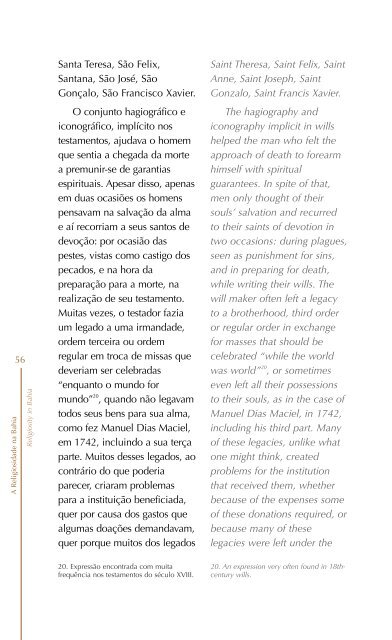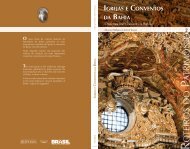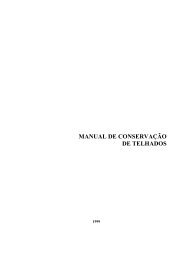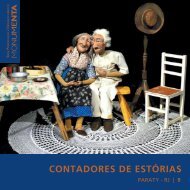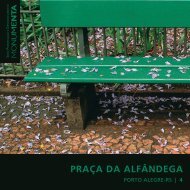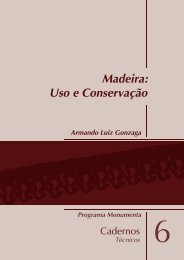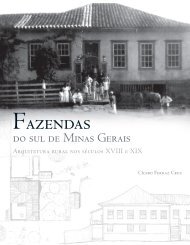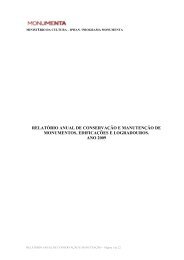Igrejas e Conventos da Bahia - Monumenta
Igrejas e Conventos da Bahia - Monumenta
Igrejas e Conventos da Bahia - Monumenta
Create successful ePaper yourself
Turn your PDF publications into a flip-book with our unique Google optimized e-Paper software.
A Religiosi<strong>da</strong>de na <strong>Bahia</strong><br />
56<br />
Religiosity in <strong>Bahia</strong><br />
Santa Teresa, São Felix,<br />
Santana, São José, São<br />
Gonçalo, São Francisco Xavier.<br />
O conjunto hagiográfico e<br />
iconográfico, implícito nos<br />
testamentos, aju<strong>da</strong>va o homem<br />
que sentia a chega<strong>da</strong> <strong>da</strong> morte<br />
a premunir-se de garantias<br />
espirituais. Apesar disso, apenas<br />
em duas ocasiões os homens<br />
pensavam na salvação <strong>da</strong> alma<br />
e aí recorriam a seus santos de<br />
devoção: por ocasião <strong>da</strong>s<br />
pestes, vistas como castigo dos<br />
pecados, e na hora <strong>da</strong><br />
preparação para a morte, na<br />
realização de seu testamento.<br />
Muitas vezes, o testador fazia<br />
um legado a uma irman<strong>da</strong>de,<br />
ordem terceira ou ordem<br />
regular em troca de missas que<br />
deveriam ser celebra<strong>da</strong>s<br />
“enquanto o mundo for<br />
mundo” 20 , quando não legavam<br />
todos seus bens para sua alma,<br />
como fez Manuel Dias Maciel,<br />
em 1742, incluindo a sua terça<br />
parte. Muitos desses legados, ao<br />
contrário do que poderia<br />
parecer, criaram problemas<br />
para a instituição beneficia<strong>da</strong>,<br />
quer por causa dos gastos que<br />
algumas doações deman<strong>da</strong>vam,<br />
quer porque muitos dos legados<br />
20. Expressão encontra<strong>da</strong> com muita<br />
frequência nos testamentos do século XVIII.<br />
Saint Theresa, Saint Felix, Saint<br />
Anne, Saint Joseph, Saint<br />
Gonzalo, Saint Francis Xavier.<br />
The hagiography and<br />
iconography implicit in wills<br />
helped the man who felt the<br />
approach of death to forearm<br />
himself with spiritual<br />
guarantees. In spite of that,<br />
men only thought of their<br />
souls’ salvation and recurred<br />
to their saints of devotion in<br />
two occasions: during plagues,<br />
seen as punishment for sins,<br />
and in preparing for death,<br />
while writing their wills. The<br />
will maker often left a legacy<br />
to a brotherhood, third order<br />
or regular order in exchange<br />
for masses that should be<br />
celebrated “while the world<br />
was world” 20 , or sometimes<br />
even left all their possessions<br />
to their souls, as in the case of<br />
Manuel Dias Maciel, in 1742,<br />
including his third part. Many<br />
of these legacies, unlike what<br />
one might think, created<br />
problems for the institution<br />
that received them, whether<br />
because of the expenses some<br />
of these donations required, or<br />
because many of these<br />
legacies were left under the<br />
20. An expression very often found in 18thcentury<br />
wills.


